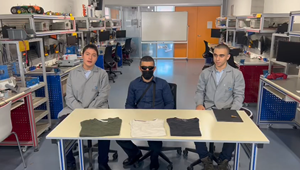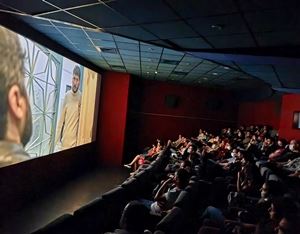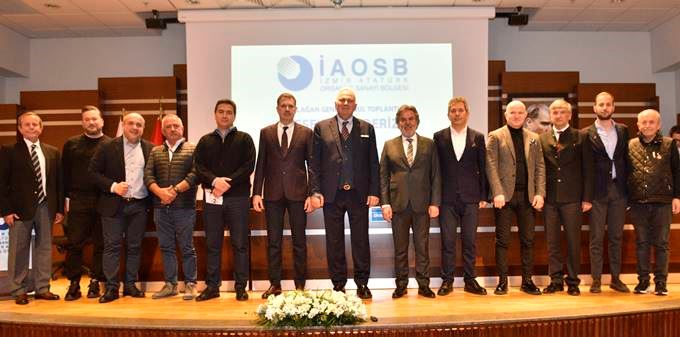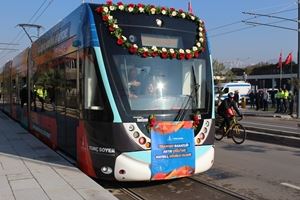The students of the Private İzmir Atatürk Organised Industrial Zone Nedim Uysal Vocational and Technical Anatolian High School once again won the Aegean Region first place in the TUBITAK High School Students Project Competition and qualified for the national finals.
This year, 27 thousand 13 projects from 12 regions applied to the TUBITAK High School Students Project Competition. While one thousand 440 projects passed the preliminary evaluation in Turkey, a total of 120 projects were invited to the Aegean Region exhibition.
Talha Yılmaz, one of the students of the school's 10-B class, and Yiğit Başaran from the same class, with their counsellor Osman Taşyuran, started the countdown to the national final by winning the first place in the Aegean Region in the field of Sociology with their project ‘Jersey Labelling with Braille Alphabet for Visually Impaired Individuals’.
Cenk Karace, Founding Representative of the school and Chairman of the Board of Directors of IAOSB, explained that the idea of the winning project was based on a social responsibility project and said:
‘In a tournament organisation where a goalball team consisting of visually impaired individuals and our school students were brought together, our students noticed that the disabled players were wearing different coloured jerseys, and when they asked why, they received the answer ‘if there is no one to help, we don't know which colour we buy’. Starting from this point, our students prepared labels showing the colour and size of the product (t-shirt, shorts, tracksuit...) in Braille alphabet and implemented this project that will enable visually impaired individuals to access a product without assistance. Our students, who learnt Braille alphabet before starting the working process, started to apply their project, which they started with jersey design, to all textile products.’
Before the national final of the competition, the school, which is working with textile companies operating in IAOSB to implement the project in all products and start mass production, aims to save visually impaired individuals from one more dependency while once again demonstrating the contribution of educational institutions operating in the industry.





